“Succeeding as a Buddhist Leader”
Cindy Chew and Dhynna Lim
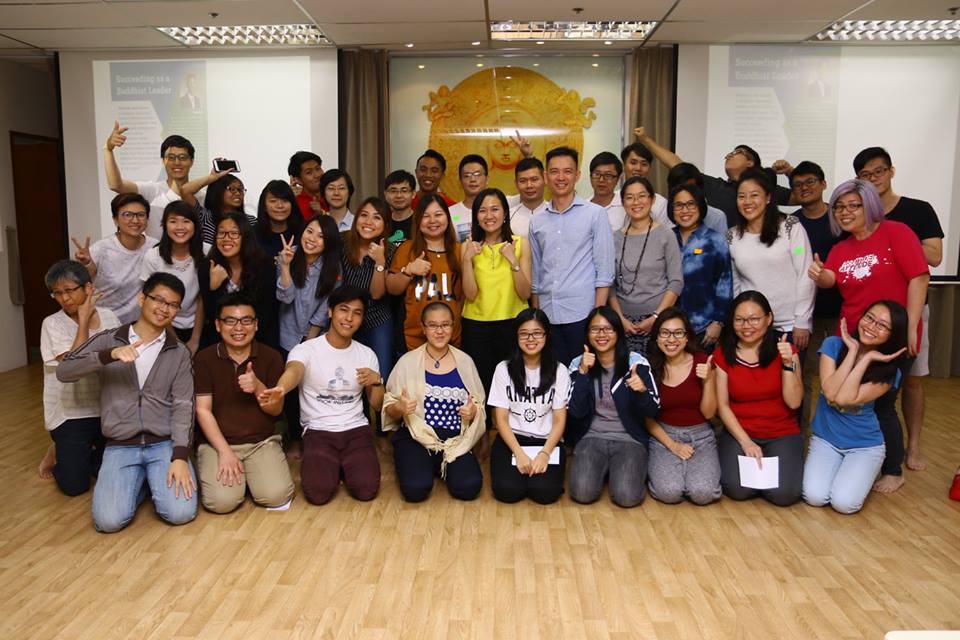
One fine Sunday on 7th August 2016, a group of youth from Buddhist Gem Fellowship Youth Connection (BGFYC), Malaysia decided to live life to the fullest and travel all the way to Singapore just to be inspired. And inspired they were.
They were part of over 40 participants in the Annual Leadership Workshop 2016, “Succeeding as a Buddhist Leader”, organised by BuddhistYouth Network (BYN), Singapore.
The session kick-started with a National Day meditation and merits dedication session led by Phra Chun Kiang, before Bro Jayson Goh’s sharing on the topic of the day. All participants were then grouped to discuss the application of Buddhist principles and concepts when serving as a leader. All in all, it was a fantastic day of learning and connecting for everyone present!
The key takeaways from the sharing were:
1) Being a good leader is no easy task, as one would need to care for many people. To complicate matters, there is no one golden method to lead effectively, Instead, a great leader needs to understand and adapt his/her style for the team members, just like how a doctor delivers the right medicine/concoction for a patient. Nonetheless, we are fortunate that the Dhamma is here to guide us in our journey to becoming successful leaders. And the advice for aspiring leaders is: “First cultivate your Buddhist values, then develop your leadership traits”.
2) A good leader has to always reflect and be mindful of the three poisons, because a leader who is motivated by greed, anger/hatred and ignorance (the three poisons), would most likely find it hard to garner respect and loyalty from followers. While greed tends to easily lead to bad things (e.g. corporate scandals), anger clouds one’s ability to think logically. Some leaders do not realise how their uncontrolled anger could have extremely detrimental impact on their subordinates. As a leader, one must remember that the impact of one harsh word spoken could be multiplied 1000 times when the follower receives it.
3) The five precepts is a wonderful ethical guide for leaders, and it is this training of morality, together with concentration and wisdom which helps us gradually curb the three poisons.
4) A top leader is a person who has good values and is able to galvanise everyone in an organisation. A great leader gains absolute trust of his team members, such that followers are willing to sacrifice, put in a lot of effort and share their problems with their leader.
“The day soldiers stop bringing you their problems is the day you have stopped leading them. They have either lost confidence that you can help them or concluded that you do not care. Either case is a failure of leadership.” – General Colin Powell
5) At the highest level of leadership, for example when a person is the CEO of a company, SQ (Spiritual Quotient), which is a measure of the ethical values the person has cultivated becomes critically important. In many occasions, the leader may not have someone with the right experience to turn to for advice. It is a situation when the leader is alone in the decision making, and thus, requires a strong ethical value framework to guide him or her. In this case, the stronger your ethics and values, the more equipped you are to make the right decision.
6) Essentially, the most important traits for a good leader are mindfulness and discipline. Mindfulness/awareness to constantly reflect on whether our thought, speech and actions are aligned with our values and ethics; while having the discipline to protect our sila (morality), hence enabling our mind to remain calm, in order to gradually make progress in our practice.
A big thank you to BYN for organising this workshop; may these learnings be put into practice and may all beings be well and happy. 🙂
BGF Youth Connection:
BGF Youth Connection (BGFYC) is the youth arm of Buddhist Gem Fellowship (BGF), formed to meet the secular and spiritual needs of Buddhist youth through modern contemporary approaches. BGFYC aims to establish a platform for youth to acquire, relate and apply practical Dhamma in real life. Every year, BGFYC organises a four-day INCOVAR Dhamma Camp, which advocates experiential learning of the Dhamma amongst its participants.
facebook.com/BgfYC
Gratitude:
Buddhist Fellowship for venue sponsorship
Sis Jasmine Liew for facilitating small group discussions
Bro Loo Han and Sis Cynthia of BGFYC for facilitating goal setting
Donors and supporters
Sis Jasmine Liew facilitating small group discussion
How Can We Apply Buddhism Principles as a Leader?
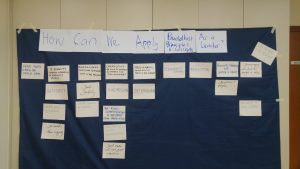
Discussions
Dharma brothers and sisters from BGF YC
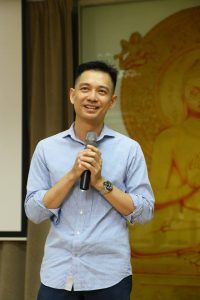
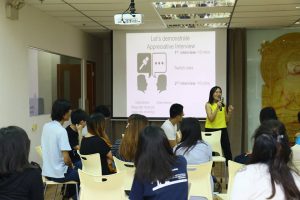
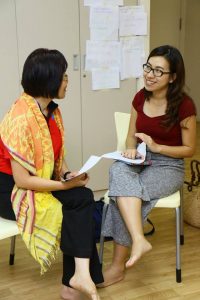
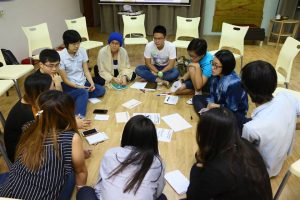

Leave a Reply